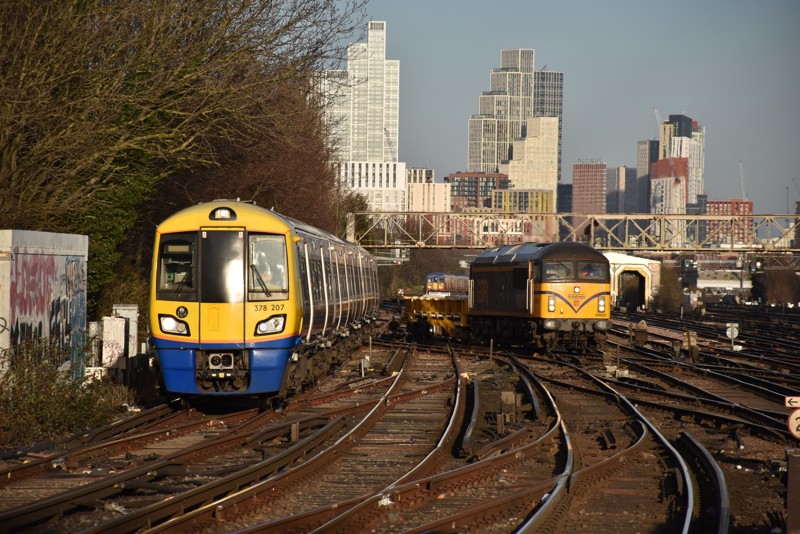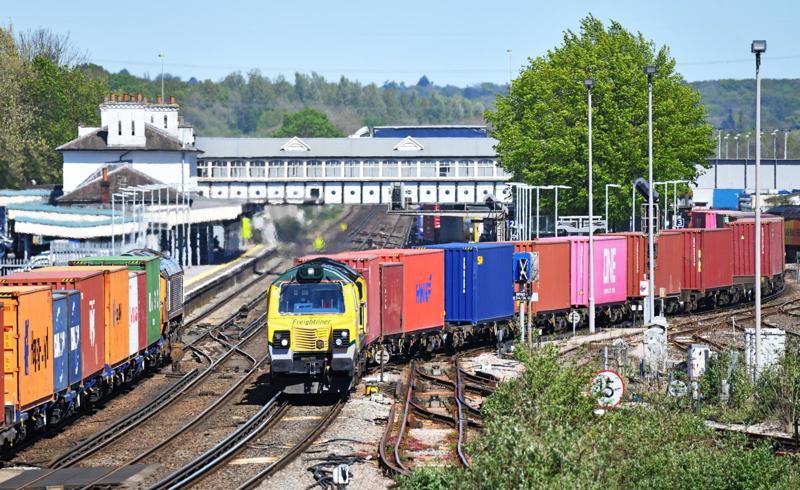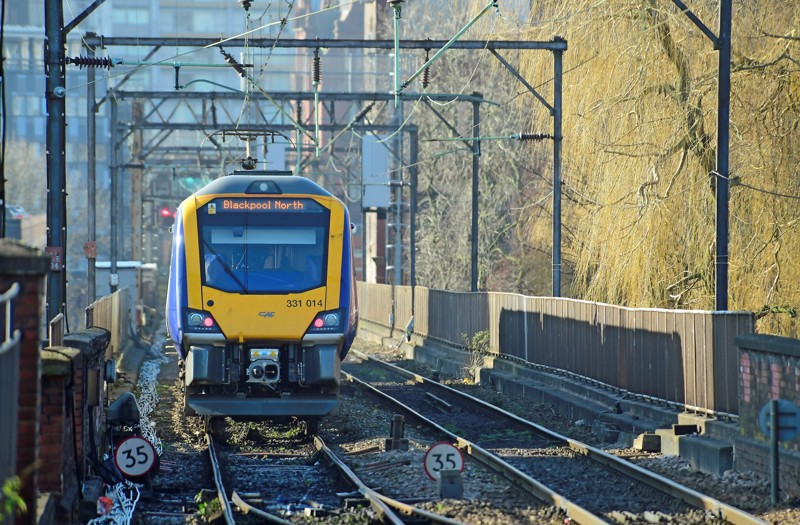
Industry figures have said they want more clarity on key details that will form part of the government’s upcoming rail reform.

Industry figures have said they want more clarity on key details that will form part of the government’s upcoming rail reform.
An eight-week consultation period began on February 18 on the government’s ambitious plans to overhaul the nation’s rail system, which will help shape Great British Railways (GBR) - a “single directing mind that will run our rail infrastructure and passenger services in the public interest”.
The document, A railway fit for Britain’s future, builds on the overarching vision of the Passenger Railway Services (Public Ownership) Bill that passed through Parliament last year.
Plans include a new independent passenger watchdog with powers to hold operators to account, changes to who takes charge of assessing track access applications, and an outline for how devolved regions can manage their own transport networks.
The government has said GBR will be operationally independent of the Department for Transport, focusing on the “operational delivery of the railways”.
“This will include delivering services; planning timetables; operation, maintenance and renewal of infrastructure and rolling stock; setting fares; and managing access to the network, including setting access charges for non-GBR operators,” the document says.
Transport Secretary Heidi Alexander said the reforms will “sweep away decades of failure, creating a Great British Railways passengers can rely on”.
One of the key areas concerning those present at the All-Party Parliamentary Rail Group (APPRG) meeting on February 24 was the prospect of GBR taking control of track access applications from the Office of Rail and Road (ORR).
The consultation says: “Under a new access framework established in primary legislation, GBR will take access and charging decisions in the public interest.”
GBR’s access and use functions will be governed by duties to deliver whole-system benefits, government priorities, and goals of devolved authorities.

The document says statutory duties will ensure access decisions are “transparent and accountable”, ensuring fair treatment for all operators, with GBR given a remit set in statute to focus on “delivering national benefits, including promoting rail freight” and to not focus solely on its own passenger services.
Speaking at the APPRG meeting, Rail Freight Group Director General Maggie Simpson said the consultation doesn’t define public interest.
John Thomas, former Director of Policy at both the Rail Delivery Group and Rail Partners, said both organisations had supported the idea of GBR, as it created an “expert body enabling the railway to take day-to-day-decisions independent of government”.
However, he asked what protection can be put in place to ensure GBR doesn’t prioritise its own services when assessing track access applications, particularly if there is competition from open access or freight operators.
“There’s nothing in the consultation document to stop GBR favouring its own services over open access in future,” he said.
“How can GBR be independent in that role? What criteria do we use when GBR assesses what capacity is available? How will GBR assess competing applications? What’s to stop GBR pricing non-GBR services off the network?”
The document does say that rejected applications can appeal to ORR, which would assess if the decision was made “rationally and fairly, in line with its legal duties”. ORR could recommend direct remedies or, in “exceptional circumstances”, direct GBR to change a decision that’s “wholly inconsistent with its duties and policies”.
However, there are calls for more there is competition from open access or freight operators.
“There’s nothing in the consultation document to stop GBR favouring its own services over open access in future,” he said.

“How can GBR be independent in that role? What criteria do we use when GBR assesses what capacity is available? How will GBR assess competing applications? What’s to stop GBR pricing non-GBR services off the network?”
The document does say that rejected applications can appeal to ORR, which would assess if the decision was made “rationally and fairly, in line with its legal duties”. ORR could recommend direct remedies or, in “exceptional circumstances”, direct GBR to change a decision that’s “wholly inconsistent with its duties and policies”.
However, there are calls for more clarity on the proposed access application and appeals processes, to allow for greater certainty when it comes to investments.
Julian Worth, Chair of the Chartered Institute of Logistics and Transport’s Rail Freight Forum, said: “How can we expect big aggregates customers to ask for hundreds of millions of pounds without any guarantees?”
Referring to open access, Thomas added: “Without long-term certainty I don’t see where investment comes from, if you have a five-year access contract with no guarantee it will be renewed.”
Simpson also said that GBR’s six clear objectives (reliable, affordable, efficient, quality, accessible, safe) did not mention driving economic growth.
Speaking more generally, she noted: “The document doesn’t say the Secretary of State will be required by law to set a growth target.”
English devolution is another key pillar of the consultation, which says it is “vital devolved governments and Mayoral Strategic Authorities (MSAs) can integrate local railways with other transport modes”.

Greater Manchester Mayor Andy Burnham is overseeing the extension of the Bee Network onto the city’s rail services. He described the upcoming bill as a “once-in-a- generation opportunity” to ensure the future of the railways in the country fits with plans in the consultation, allowing local authorities to set ticketing structures and to better control budget and investment for their regions.
But speaking at APPRG, Simpson pointed out that a freight service running from Southampton to Scotland could potentially run through numerous devolved areas, and therefore strong, independent regulation would be needed.
The consultation says: “Much of the detail regarding GBR’s relationships with MSAs can and role in moderating unresolved should sit outside legislation through bespoke agreements. Partnerships will mark a change in approach in how the railway engages locally, enabling GBR to better meet the needs of areas and wider communities. The plans also reflect that devolved arrangements vary, so a one-size-fits-all approach would not be appropriate.”
Other areas of the consultation have been welcomed, such as a new passenger watchdog.
Alexander said the government was “giving passengers a powerful voice with a new watchdog dedicated to addressing their biggest concerns, building railways people can trust, improving our services and boosting the economy in the process”.
The document outlines two approaches: a statutory advisor that would be consulted on strategies and business/infrastructure plans and moderate unresolved passenger complaints; a statutory advisor with regulatory functions that include overseeing passenger assistance, information, complaints and consumer law.
Either way, the government says it expects the watchdog to have a role in moderating unresolved passenger complaints, a role currently provided by the Rail Ombudsman.
Paul Tuohy, Chief Executive of Campaign of Better Transport said: “The introduction of a strong passenger watchdog is welcome, as is giving the public and the industry two different options for how this might look. We are pleased to see a commitment to simplifying fares and it’s good to see private sector innovation included here.”
However, he added that the new watchdog will need “teeth to hold GBR to account when it needs to”.
The document also says the Transport Secretary will set out parameters and guardrails that will govern GBR’s fares, with GBR unable to referee itself when it comes to ticket prices. The government also says it will “support and promote a thriving third-party retail market” while building a new website and app that will gradually replace the 14 train operator sites that sell tickets.
Consultation closes on April 15 at 2359.
Login to continue reading
Or register with RAIL to keep up-to-date with the latest news, insight and opinion.


















Login to comment
Comments
No comments have been made yet.